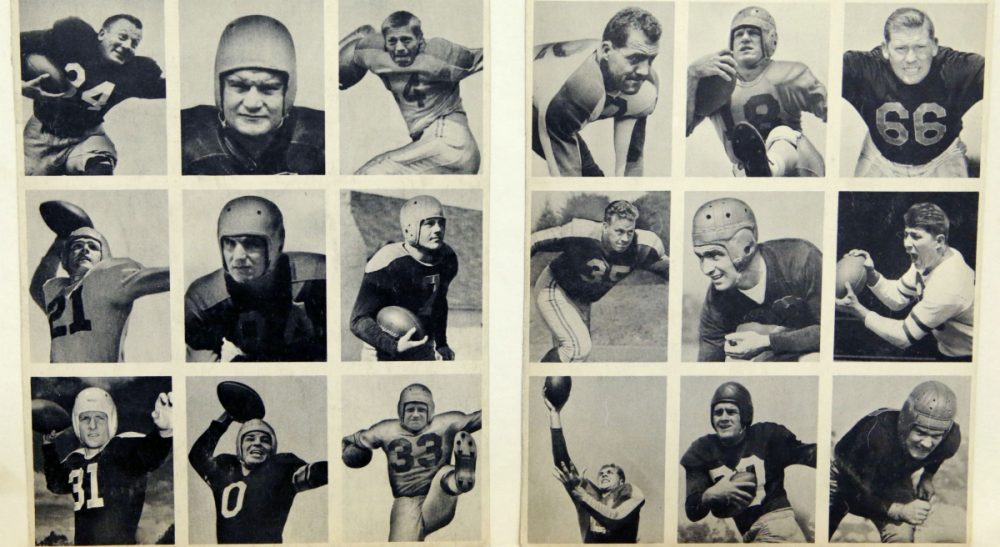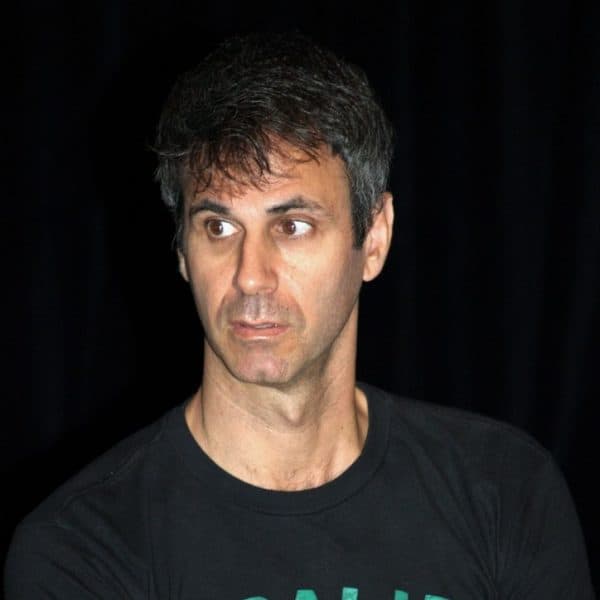Advertisement
You've Got Mail! Reactions To My Book, 'Against Football'

When I decided to write a book about my anguished 40-year relationship with football, I knew I was going to upset fellow fans. But I had a plan to cushion the blow. I hoped to call the book “This Eager Violence of the Heart,” a phrase borrowed from the Don DeLillo novel "End Zone," which I felt would capture my tortured feelings. What’s more, I would dedicate the opening chapters of the book to my love of the game.
Within a day of the book’s publication, the vitriol started pouring in. 'You are the biggest [derogatory expletive that rhymes with maggot].' Another suggested that ISIS should behead me.
Of course, my publishing house, in the grand tradition of publishing houses, had a more commercial title in mind: "Against Football." And while I do spend many pages praising the game’s virtues, most of the book is devoted to football’s corruptions, the way it endangers players, fosters attitudes of intolerance and has converted our allegiance to athletic heroism into an engine of greed.
I ultimately conclude that we fans have no one to blame but ourselves, that we’re the ones who built this country’s massive Football Industrial Complex. So let us just say that I was bracing for some unhappy reactions.
I didn’t have to wait long. Within a day of the book’s publication, the vitriol started pouring in. “You are the biggest [derogatory expletive that rhymes with maggot].” Another suggested that ISIS should behead me.
There were several other notes in which my correspondents appeared actually to have read the book — and still thought I was an idiot. The terms on display were a bit more colorful: “wussie,” “pansy,” “liberal fascist.”
But after that initial flurry, a surprising thing happened: I started to receive notes of support from some unusual suspects. Former NFL players, for instance. “What you explain in ‘Against Football’ is dead on,” wrote Markus Koch, a former defensive lineman for the Washington Redskins. “I participated in the football myth from the inside out.”
I received heartbreaking notes from relatives of players who suffered from Chronic Traumatic Encephalopathy (CTE) the form of dementia most commonly associated with playing football. A few of these came in response to the NFL’s recent admission, in federal court documents, that it expects 30 percent of its retired players to develop long-term cognitive problems at “notably younger ages” than the rest of the population.
I’ve also heard from several teachers who have written to express their distress over how football affects their students. “As a teacher,” one note began, “it broke my heart every fall Monday morning when 17-year-old football players, who were still not seeing clearly, would stumble into class after the Friday night game. It’s bad enough that they're suffering brain injuries trying to get noticed by college recruiters, but in many cases their academic endeavors were never nourished, and, try as they might, they'll never win Division One scholarships.”
More than a few letters came from fans who had decided to turn away from the game. “After 55 years of playing and watching football — I considered myself a huge fan — last month I quit,” one such note read. “Three days ago I found your book, and you have reinforced my resolve. It is not the game I fell in love with at age five. I know the feeling and it's very real: to this day I cannot watch boxing after seeing what the sport did to Muhammad Ali, and it's now the same with football. The economics and business practices you brought to light are just nails in the coffin, and then when I saw red zone advertising being tested in the preseason... well, all things considered the NFL has gone too far on too many levels. I'm looking forward to seeing what life is like without football.”
Obviously, the folks who would bother to pick up and read a book called “Against Football” represent a self-selecting audience.
Still, I’ve been happily surprised by the response thus far.
My hope was to spur a long-overdue conversation about why we need a beautiful savage game to feel united as a country, and fully alive.
I routinely hear from people that football is “too big to fail,” that it has too powerful a grip over the hearts and minds and wallets of Americans to ever be held to account. But here we are, barely two weeks into the season, and rather than talking about football as a form of entertainment, fans and media continue to discuss the sport as a moral undertaking.
I sometimes encounter people who suspect that I’m delighted about the scandals currently enveloping the league, in particular the incidents of violence against women and children. But the intention of my book was never to condemn football, or the men who play it. I have no interest in trying to abolish the sport. The point of my book is simply to ask that individual fans face the dark side of football, as well as its obvious pleasures.
My hope was to spur a long-overdue conversation about why we need a beautiful savage game to feel united as a country, and fully alive. It is my devout hope that the notes piling up in my e-mailbox represent the beginning of a mass reckoning with America’s favorite sport.
Related:
- Cognoscenti: An Open Letter To Wes Welker: Stop Playing Football
- On Point: The NFL And Adult Bullies
- The NFL: Big Business With Big Tax Breaks
Attention readers in the Boston area! Don't miss Steve L I V E at the Brookline Booksmith on Thursday, September 18 at 7:00 p.m. for a reading from and talk about his new book, "Against Football."
